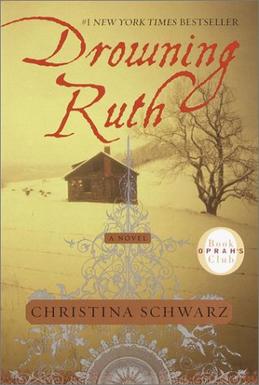I definitely preferred She's Come Undone because it is far more character-driven. The main character and narrator is Dolores Price, whom the book follows from childhood all the way up to adulthood, through good times, bad times, and several mental breakdowns. The book takes place between the 1950's and the 1980's, a period during which both the role of women in society and the definition of the nuclear family drastically changed, and we get to see Dolores and her mother, grandmother, and friends struggle with their own miniature versions of the cultural clashes going on all around them. Dolores's grandmother, for instance, is joyless and rigid about religion, gender roles and morality, whereas Dolores's mother carries on extra-marital affairs and dresses like Marilyn Monroe for her job as a tollbooth operator.
The men in Dolores's life are either absent or abusive, and her attempts to connect with men and find a father figure are a source of significant trauma; yet Dolores never completely gives up on love.
The best thing about the book is Dolores's voice, which is intimate, self-deprecating, funny and engaging. I found it really hard to put the book down because I liked Dolores so much I wanted to find out what happened to her.
I want to share a couple of funny quotes from the story that give a good idea of the story's tone.
The first two are from a scene where Dolores tries to get the school bully in trouble by "confessing" to her priest at Catholic school that she had seen the bully drawing dirty pictures in one of the textbooks (which she did not) and hadn't told the teacher.
"For my penance, Father Duptulski gave me ten Hail Marys, something that struck me as a reasonable punishment for an accomplice, a mere bridesmaid in crime."
I love the idea of someone being "bridesmaid in crime."
And after Dolores leaves the confessional booth:
"I knelt and prayed, not for forgiveness - but for the accuracy of my assumptions: that the sanctity of the confessional applied more to murderers than to kids."
Of course Dolores is right; although what happens in the confessional is supposed to stay between the priest, the confessor, and God, Dolores's teacher chooses that afternoon to conduct a "textbook inspection," and the bully gets a year's worth of detention.
Another funny passage is Dolores's description of her manipulative college advisor, a "willowy redhead [who] kept her eyes at permanent half-mast indifference. It was as if Robert Mitchum had mated with an Irish setter and this...was the result."
It's interesting to hear Dolores's clever takedowns of the beautiful girls around her, especially since they treat her like a sub-human because of her appearance (she's described as obese at this point in the story). It made me wonder how many times I have looked past people who were really worth knowing, simply because something in their appearance put me off.
A lot of the reviews I read online were negative; people said they didn't like the book because it's basically just a series of bad things happening to poor Dolores. And it's true that she has more than her fair share of tragedy. But to me, that was the central theme of the book; that life is hard but you can't stop fighting.
At any rate, I would have followed Dolores through another twenty years of tragedy because I so much enjoyed hearing her voice.
Drowning Ruth was almost the polar opposite; it's a book that is totally plot driven. I didn't care about the characters, but I did want to know "what happened"; specifically, what happened one cold night when a young woman drowned in an icy lake.
The story starts with this event, and then jumps back and forth through time, eventually explaining the how and why of the young woman's death. I was interested in the story, but the author was so mysterious about the ending and delayed it for so long that I assumed there was much more to it than there actually was. I kept expecting some nefarious revelations and got kind of a "meh" story, so it was a bit disappointing.
Still, it will be interesting to see what else the author might have produced; I feel like it had a lot of potential, and it was a first book, after all. I am a bit surprised that it was a bestseller, but maybe that's because it was an Oprah's Book Club selection.
I don't have any quotes to share, because nothing really struck me or spoke to me. Like many plot-driven stories, the language was fairly utilitarian. I only gave it two stars.



No comments:
Post a Comment